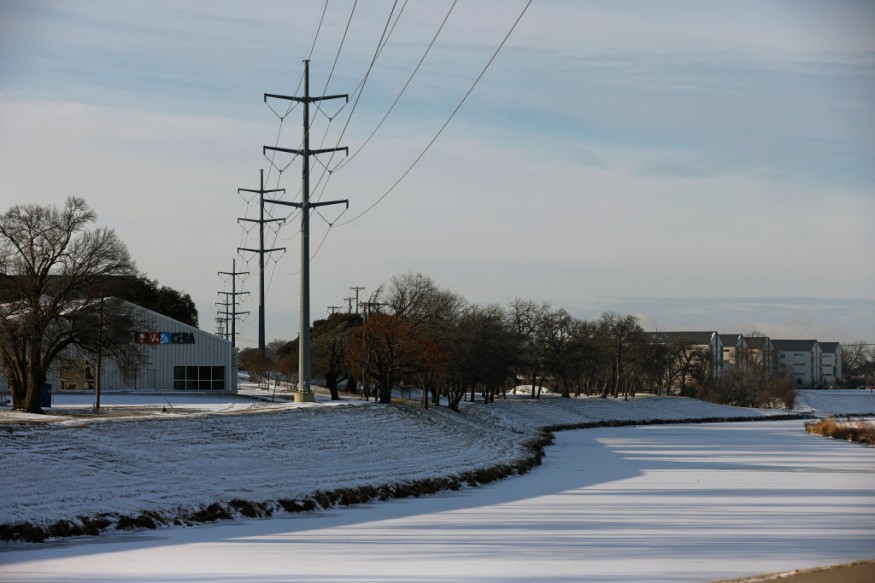Wells of natural gas and pipelines ill-equipped for cold temperatures are a huge factor why millions of Texans lost power amid cold temperatures this week. The liquid inside wells, tubing, and valves froze solidly as temperatures plummeted to record lows in certain parts of the state.

Ice will obstruct the flow of steam, clogging tubes. It's a phenomenon called a "freeze-off" where winter cold disrupts gas production across the US. But, as we've seen this week, freeze-offs may have an even bigger impact in Texas. The state is a major producer of natural gas and normally doesn't have to deal with such cold weather.
"The idea that the freeze offs are happening in Texas is why we think about what's been going on in the last week and why it's flipped the market absolutely on its head,' says Erika Coombs, director of oil & gas markets at consulting company BTU Analytics.
Related Article: Arctic Blast Hits Central US; One Dead, 2 Million Households Without Power
Texan Source of Energy
Rather than any other fuel for its power supply, Texas depends almost solely on natural gas. In 2019, gas produced almost half of the state's electricity, according to the Electric Reliability Council of Texas (ERCOT). Wind and coal accounted for about 20 percent of electricity production that year, while nuclear power accounted for about another 10 percent. Though the storm has hampered nuclear and wind power, neither frigid nuclear plants nor freezing wind turbines bear the greater share of the blame for Texas' power problems.
"Most of the generator that has gone offline today seems to have been largely due to natural gas system problems,' Dan Woodfin, senior director of system operations at ERCOT, said during a call to reporters on February 16, the Texas Tribune reported.
As the freezing weather slashed all fuel supply types, demand for natural gas also soared to warm homes. Says Coombs, the "mismatch" is what drives these blackouts. There was clearly not enough fuel on hand to power the energy needs of the state. In Texas and its gas-rich Permian Basin, natural gas production has almost halved during the recent cold and stormy season. According to BTU Analytics figures, it dropped from 22.5 billion cubic feet of gas generated per day in December to between 10 and 12 billion cubic feet of gas every day this week.
This drop-off in production is attributed to freeze-offs at wellheads where oil and gas are pumped out of the field. But, Coombs says, the cold has also prevented machines from operating correctly at gas production plants. Processing plants isolate gas from fluid and impurities; plants must heat it up or wait for temperatures to increase so they can restart their work when machinery freezes.
Freeze-off
When temperatures get cold enough to freeze water and other liquids found in the mixture of natural gas, freeze-offs occur, preventing the flow of gas from the wellhead. Via a range of methods, including regular Freeze-Off Overview reports from our Spring Rock Development Community and Natural Gas Base Commentary, Genscape has tracked the effect on production.
BTU Analytics keeps our attention on the freeze-off horizon as winter approaches, holding careful watch over the output of natural gas and flows around the world to detect the tell-tale signs of a freeze-off.
There is an upcoming withdrawal season with historically low storage levels this year, leaving us to wonder what effect freezing winter temperatures might have on the supply and prices of natural gas this year. When production grows in states vulnerable to freeze-offs, every one may see intensified demand effects in the colder months.
For the latest weather updates, don't forget to follow Nature World News!
© 2026 NatureWorldNews.com All rights reserved. Do not reproduce without permission.





